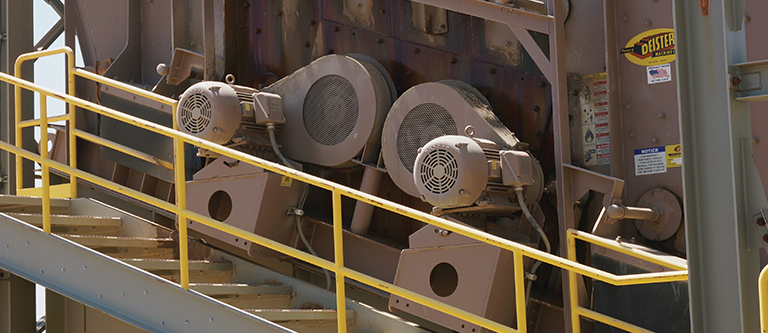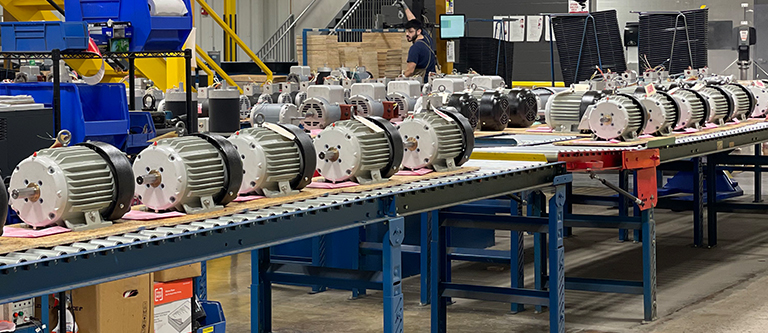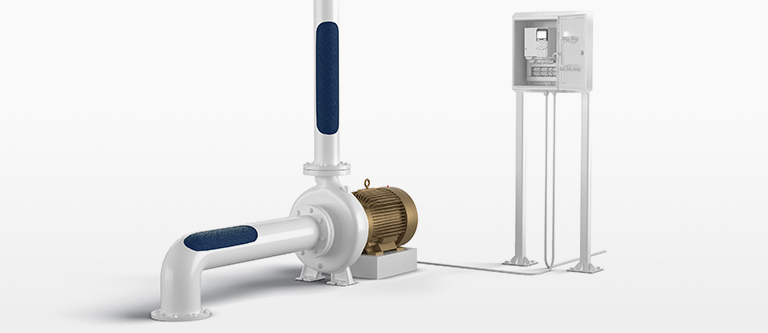
Currents – an ABB NEMA motors blog
17 Posts
Improving energy efficiency in HVAC installations provides many benefits, including lower energy bills, reduced greenhouse gasses, improved air quality, improved system efficiency and output. Government and industry-specific motor efficiency standards are in place, yet there is still demand to achieve greater efficiencies to support industry and sustainability goals. As regulations tighten on total system efficiency, we must look beyond just motor efficiency to meet new and emerging regulation requirements.
Continue reading...
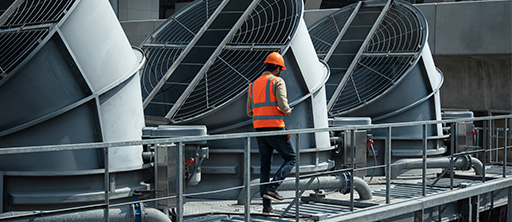
In industrial settings, the condition of equipment such as motors plays a crucial role in ensuring smooth operations and preventing unexpected failures. However, monitoring low voltage mo-tors, especially in hazardous areas, has traditionally been a costly and often overlooked process. The ABB Ability™ Smart Sensor for motors transforms conventional motors into intelligent, wirelessly connected devices capable of providing real-time health monitoring. This innovation allows users to proactively monitor their motors, plan maintenance activities in advance, avoid un-planned downtime, optimize efficiency and improve safety. And now, ABB is offering customers a great opportunity to experience this technology for themselves.
Continue reading...
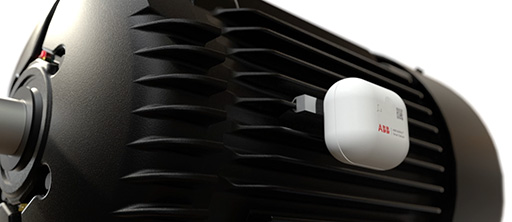
Electric motors play a vital role in numerous industries and applications, powering everything from industrial machinery to household appliances. One common question that often arises is whether all electric motors can operate at variable speeds. In this blog post, we'll delve into the concept of variable speed in electric motors and explore the factors that determine their ability to operate at different speeds.
Continue reading...
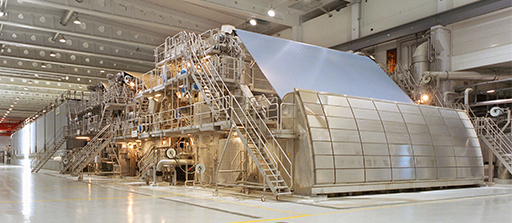
Currently, magnet-assisted synchronous reluctance motors offer the most efficient performance available. This type of motor will reliably deliver IE5 performance when it is paired with a variable speed drive (VSD). Together, magnet-assisted synchronous reluctance motors with VSDs enable significant efficiency gains over induction motors across a wide speed range, and they offer benefits when operated with partial loads. Integrated motor drive packages are available in standard sizes meaning that they can be used as drop-in replacements for other NEMA motors. Note that synchronous reluctance motors require VSDs to enable precise control of the motor speed and torque and ensure that they operate with the optimal efficiency. It’s also worth noting that the IE5 class applies to the motor but not the drive: the VSD enables the motor to run with IE5 efficiency.
Continue reading...
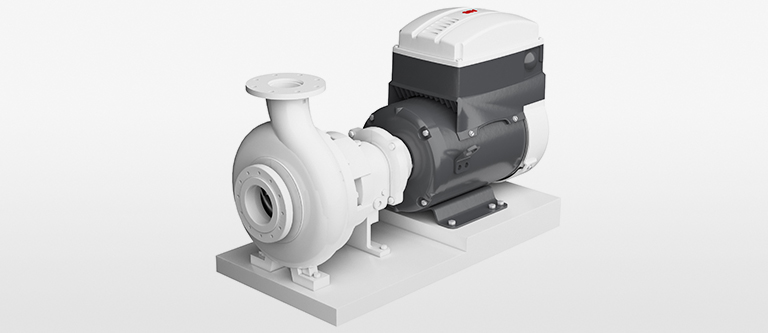
A large percentage of motors at work have been in service for a long time. It is estimated that more than 60 percent of motors in U.S. industry are at least 10 years old. While many motors are still in good working condition, these older designs are less efficient than modern motors, which impacts operating costs and energy consumption. Updating to newer, more efficient, motor systems can lead to significant gains from energy and cost savings. In this two-part blog post, we will focus on two proven methods of improving motor system efficiency: Adding a variable speed drive to control an existing motor and replacing an older motor with an IE5 efficiency integrated motor-drive.
Continue reading...
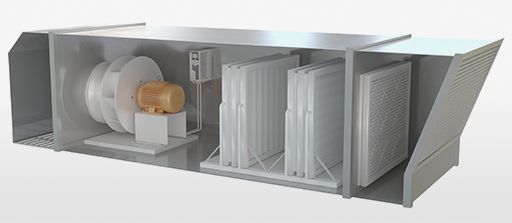
Specifications for low-voltage electric motors for the chemical, oil and gas market were established as the result of practical experience in the field to improve equipment reliability. IEEE 841, API 541, API 547, API 546 and other standards form the basis for most specifications in this segment; however, additional considerations must be given when specifying motor for offshore energy applications.
Continue reading...

What’s the difference between horsepower and torque? It’s a simple question that doesn’t have a very simple answer. In short, both terms are used as units that measure force, but we’ll dig a bit deeper into what exactly that means. Let’s begin with torque. Torque is a measure of force that can cause an object to rotate around an axis. It can be mathematically calculated as: torque = force (lbs) x distance (in or ft) x sin(Θ). The “Θ” is the angle at which the force is applied relative to the object receiving the force. The function “sin(Θ)” is a factor that has to do with trigonometry. That said, the simple explanation is that if the force is applied perpendicu-lar (i.e., 90°) to the object, the factor is “1” [because sin (90°) = 1]. If the angle changes to something less than or greater than 90°, then the factor becomes less than 1 (until it goes all the way to 0° or 180°, which would imply that the force is not being applied to the object anymore). To support that argument, the sin (0°) is zero, so mathematically the factor goes to zero (and so does the torque).
Continue reading...

For many operators of industrial motors, general purpose designs offer an appropriate level of functionality, reliability and longevity for their applications. However, for businesses that deploy equipment in challenging environments and difficult conditions, a higher level of performance is often necessary. For these types of challenges, a severe duty motor is often the answer.
Continue reading...
